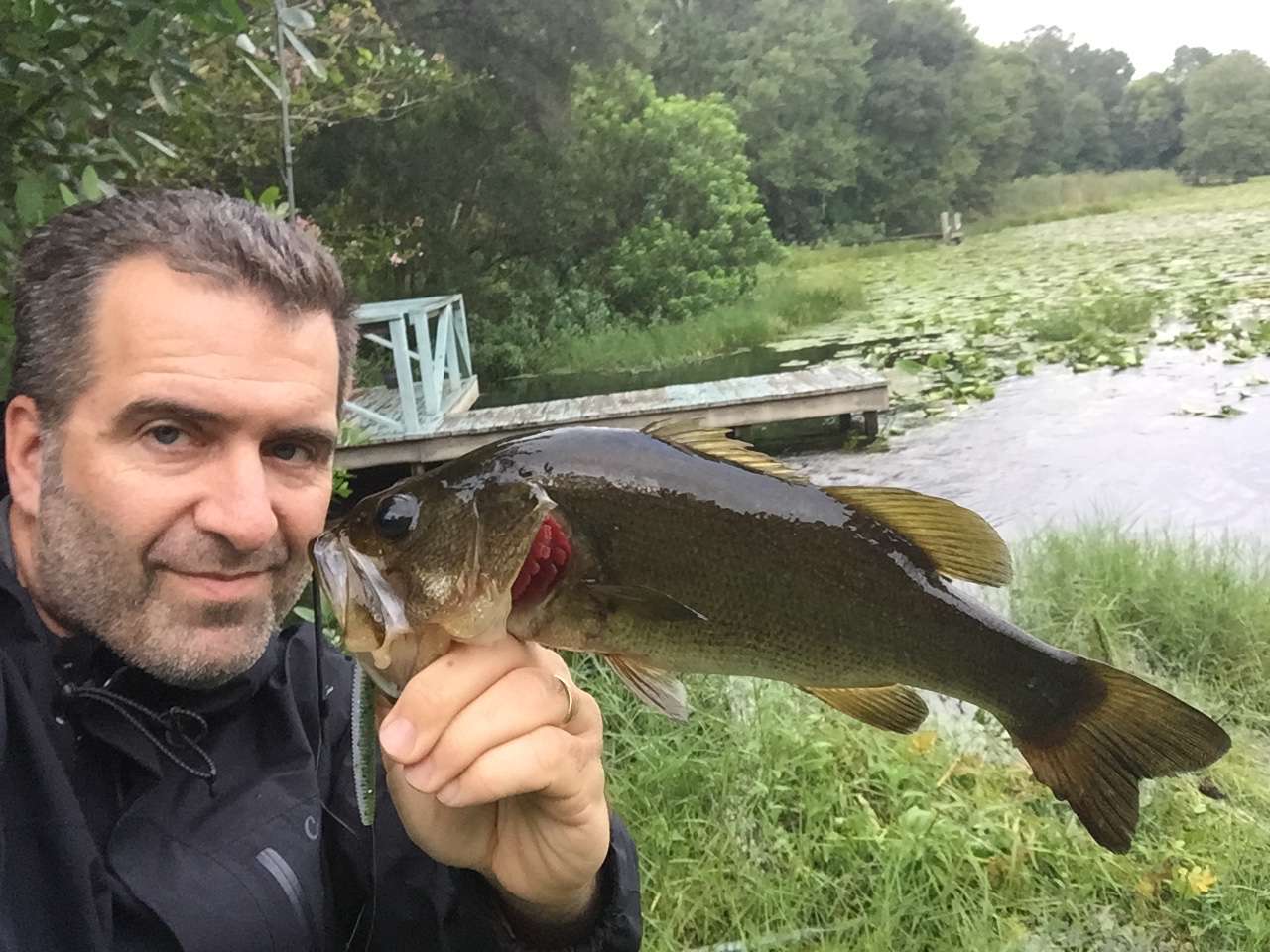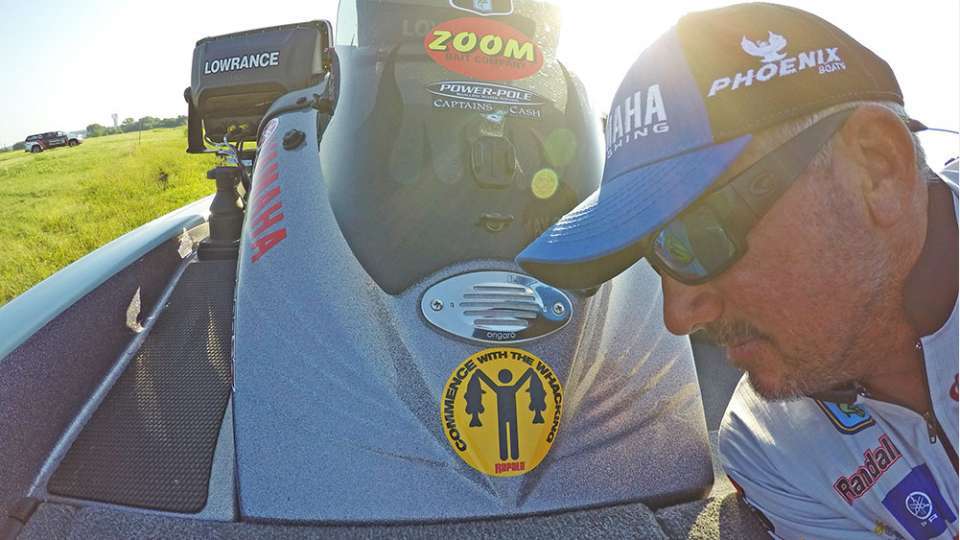
’Twas the night before the Classic and all through the field, anglers acknowledged: It’s about to get real.
No doubt, the biggest event of the year carries with it an aura of intensity that creates its own atmosphere and leaves the day before bristling with the business of busyness.
A morning of media sessions, sponsor obligations, meet-and-greets, and random fan stuff keeps anglers on the run. But what about the person behind the jersey? What’s that night before a Classic like?
Some play it off. No big deal. Nothing special. I got this.
That’s cool. We respect everyone’s approach and realize that not all competitors feel comfortable sharing personal glimpses. However, a handful of anglers afforded us a visit to their wheelhouse.
For starters, 2003 Classic winner Mike Iaconelli has a three-step prep process starting with a visual walk-through of all his tackle.
“During Classic week, you’re getting pulled in a million different directions, so you try to get your tackle done a little bit every day, but on that last evening, my ritual is to look at everything to make sure it is tied on right,” he said. “I don’t want to wake up on Day 1 and say ‘Oh I forgot this rod had 8-pound fluorocarbon instead of 6-pound,’ or ‘Shoot, I forgot to change the trebles on that one bait.’”
Step two is a good dinner to fuel the engine for Day 1; and then, a final round of intense map study.
“Literally, the last thing I do the night before the Classic is lay out the game plan for the next day,” Iaconelli said. “It’s paper maps, it’s my iPad for looking at Google Earth, and it’s a notebook where I write down a details about where I’m going to fish.
“A lot of times, I’ll fall asleep and the map will still be laying on me.”
Like most, Iaconelli lays out a multi-stage plan with options One, Two and Three, but his final thought for the night is one of flexibility.
“As prepared as I am, you still have to be free enough to fish the moment,” he said. “I remind myself that and I’ll even write it down on the notepad and say it to myself before going to sleep.”
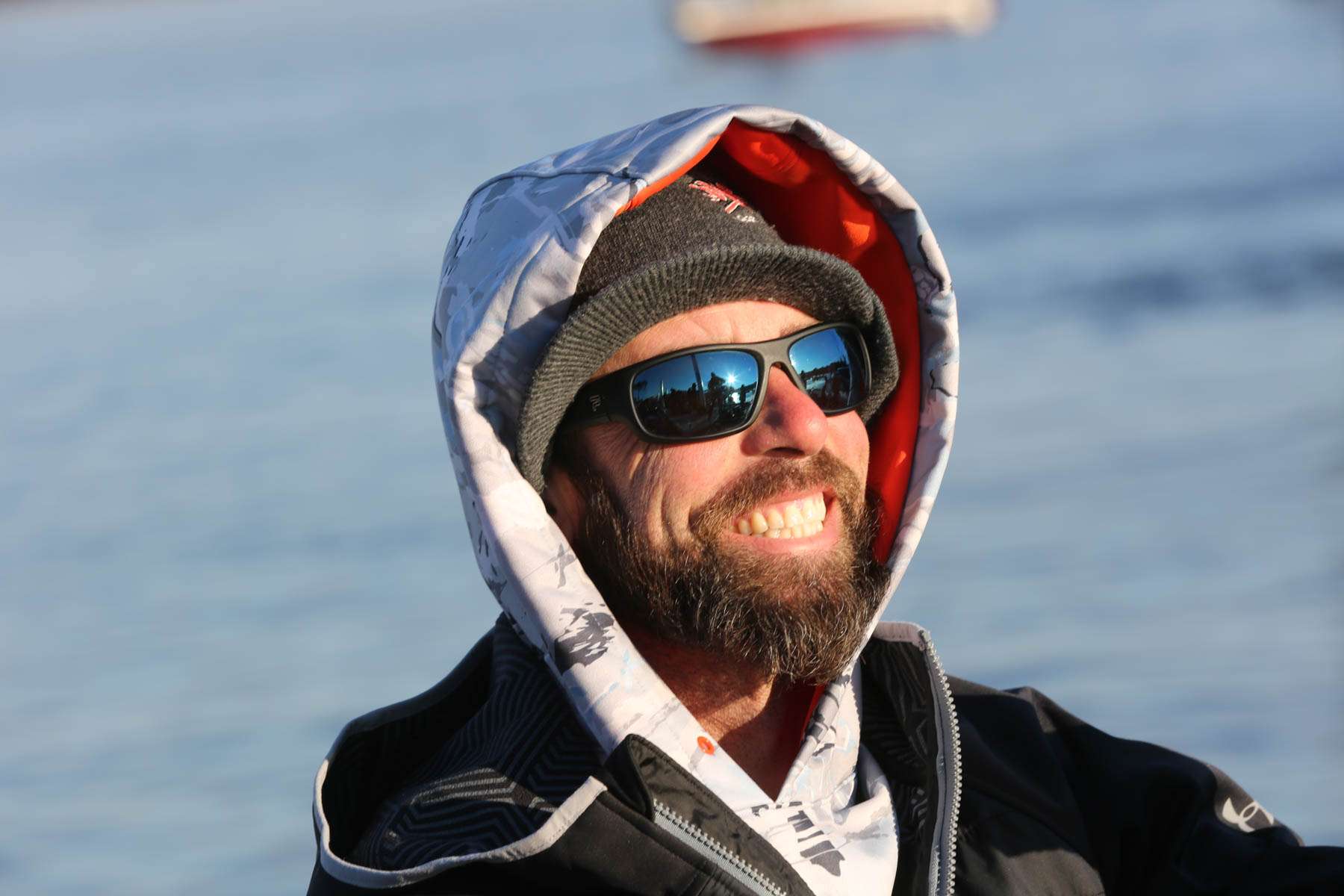
Mood and Motivation
Athletes of all sports chill with their tunes, so why not anglers? West Coast stick Ish Monroe likes his hardcore hip-hop — Mac Dre, 2 Chainz, Notorious B.I.G. and Lil Wayne.
“The music takes my mind off of things and chills me out,” he said.
Making his first Classic appearance in 15 years, Dave Lefebre’s going with contemporary Christian artists like Switchfoot, Skillet and Hillsong United. The positive, encouraging vibes, he said, help him maintain his perspective.
“By this time, I’ve worked as hard as I can, prepared to the best of my ability and now it’s in His (God’s) hands, literally,” Lefebre said. “I want to win and I’ll try as hard as possible, but it’s not the end of the world if that doesn’t happen.
“That frame of mind is where I need to get to,” he said. “It relaxes my jitters and helps me perform at my best.”
Strategic Thinking
Expounding on Iaconelli’s thoughts, Casey Ashley might listen to some Kenny Chesney or watch an action movie — usually something he’s seen 100 times; but not until he’s put himself through a mental round of “what-ifs.”
“The biggest thing for me is to play out Day 1 in my head; like where I’m going to start, what bait to start with, what’s the back-up bait or baits, then on to the second and third stops,” the 2015 Classic winner said.
“And I have to have a scratch plan — that’s what you do when nothing in your plan is working. You totally scratch that and start practice all over during the tournament. I think about most of this while I’m rigging my tackle.”

Pep Talks and Perspective
Some draw wisdom and insight from their sports backgrounds. A high school baseball and basketball player, Andy Montgomery has felt his share of pre-game hype; but the South Carolina pro knows that too much adrenaline becomes counterproductive.
“You really just try not to think about what tournament you are fishing and treat it like any other tournament,” he said. “I learned from my athletic days that if you get too amped up it could negatively affect your performance, as well as make you tired.”
Jason Christie, who finished second to fellow Oklahoman Edwin Evers at last year’s Classic on Grand Lake, takes the sports reference a step further by actually calling a former high school coach. A shared love for fishing has formed a lasting friendship that provides Christie’s pre-Classic gut check.
“It’s just one of those calls that when you make it you know you’ll get that talk about how it doesn’t matter how you finish because you made it to the Classic,” he said. “I know that’s not what I want to hear, but it takes the pressure off because I can spill my guts to somebody.
“That night before, I’ll be sitting there thinking ‘Do I have a chance to win? Which fish do I start on?’ I get kinda caught up in all that, but whenever I talk to him, it kind of puts it in perspective. Like, just have fun, take your time and you’ll be fine.”
Seeking Seclusion
Classics bring significantly more interaction than regular-season Elite events, but Greg Hackney values his alone time.
“I typically try to stay away from everyone for a few hours before I go to bed so I can meditate,” he said. “I don’t have a certain technique, I just make sure I have my mind clear.”
Randall Tharp agrees, but he actually begins his insulation upon arrival.
“Classic week is far from normal, but I try to keep it that way by staying at the lake in my camper, just like I do at every Elite event,” he said. “I have a healthy, quiet dinner with my wife and get in bed early.
“Rest is my biggest concern prior to the start of the Classic. Once it starts, we have two long drives a day, a lengthy weigh-in, then media obligations. That adds up to more time than we actually compete every day.”
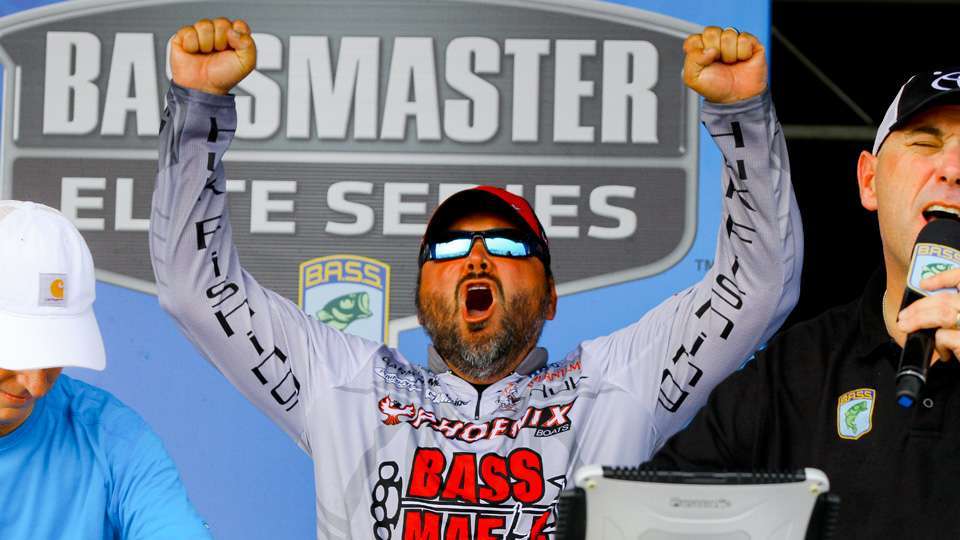
Keepin’ it Simple — and Quiet
Some set strict lights-out times. That’s 9 p.m. sharp for Hackney and about the same for Tharp. Four-time Classic champ Kevin VanDam is rarely far behind and that’s largely to avoid arriving at the ramp exhausted.
“We’re so far from the lake that your morning starts at 3:30, 4 at the latest,” he said.
Between sponsors, fans and media, a Classic angler can quickly find himself at the end of a day but still in need of last-minute tackle prep, meal packing, etc. VanDam lauds his wife’s efforts to keep an eye on the clock.
“Sherry is just as involved in all this as I am, and she does a great job of scheduling everything so we have time for a quiet family dinner that night before the Classic,” he said. “We like to mix it up — sushi, a nice steak house, or Italian. But the night before a Classic you don’t want a long, drawn-out, 2-hour dinner.”
Minding the Diet
Performance pressure, especially with a flotilla of fan boats, can leave an angler too stressed or distracted to eat, but not so for resident healthy living guru Aaron Martens. His runner’s mindset tells him to make time for caloric intake and that’s why food prep ranks high in his pre-Classic tasks.
As picky with his low-fat smoothies as he is with his drop shot rigging, Martens will carry his restaurant-quality juicer/blender to the Classic and blend 10-13 ingredients — fruits, vegetables, plain yogurt, egg whites, seeds, nuts — for drinkable meals he can quickly access throughout the fishing day.
If the weather’s cold, Martens will swap the smoothies for his wife’s homemade chili or chicken soup. In any case, he’ll also pack a several energy bars, a honey bottle and a PBJ for the midday sugar plunge.
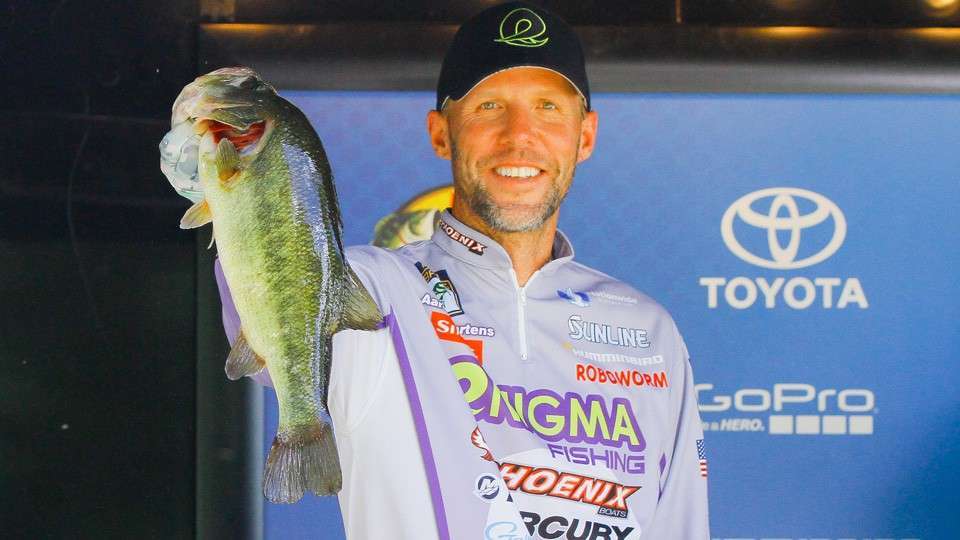
Arrive Ready
Takahiro Omori also takes his health and fitness seriously, but the 2004 Classic champion said the most important thought he can have the night before the big show is confidence in the work he’s invested.
“I just eat normal stuff at my camper and if I need to workout, I do some stretches for my shoulder using foam rollers,” he said. “Every day is important to eat healthy and work out; not just the night before the Classic.
“You don’t win the Classic because of something you do the day before. I work for this year after year.”

